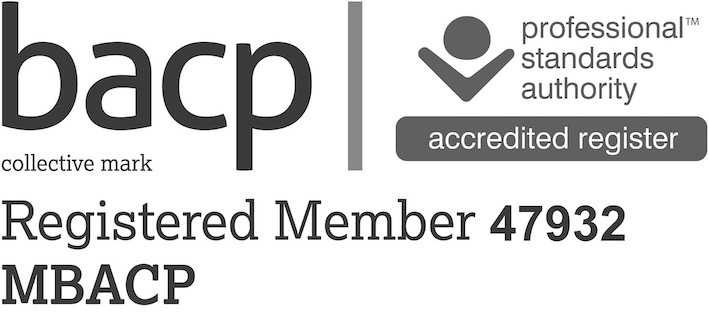MINDFULNESS (MBCT)
Mindfulness-Based Cognitive Therapy (MBCT)
Mindfulness-Based Cognitive Therapy (MBCT) was designed specifically to treat recurrent depression. MBCT is recommended by the National Institute for Clinical Excellence (NICE) as a treatment of choice on the NHS for repetitive bouts of depression. However, this therapy is currently not widely available on the NHS.
MBCT blends ancient wisdom and modern psychology and neuroscience. It combines various forms of meditation and gentle physical stretching exercises together with cognitive therapy. MBCT is known to help people break the negative thought patterns that are characteristic of recurrent depression. I will teach you to meditate and you will be asked to do an hour of home practice for six days of the week. Through formal meditation practice, you will develop the ability to hold your attention in the present moment, rather than worrying about the past or future. You will also become much more aware of your body and the signals that it gives you about how you are feeling so that you can catch and manage the onset of depressive episodes.



Definition of Mindfulness
The word mindfulness means clear and kind awareness. It is being alive and present to the external and internal world in the moment. Mindfulness is taught through meditation. During the practice, you train the mind to focused and concentrated. After a while, you will notice the habitual patterns of your mind. You will begin to learn to manage your emotions more effectively, rather than resorting to suppression or avoidance.
Below is the most well-known definition of Western secular mindfulness. Professor Kabat-Zinn is most widely credited for popularising mindfulness within medicine.
The awareness that emerges through paying attention on purpose, in the present moment, and nonjudgmentally to the unfolding of experience moment by moment.
The Benefits of Mindfulness
Focus
Sharpen concentration & attention
Rebalance
Work/life, heart/head, body/mind
Pause
Ground, centre, unwind & still the mind
Develop EQ
Emotional intelligence to better understand yourself and others
Communication
Enjoy better quality of interactions with others
Cope with Pain
Find a way to live with pain and difficulties
Frequently Asked Questions
Do you have a specific training in mindfulness?

Meditation teacher London
I have undergone a specialist mindfulness training through Bangor University and am listed with the British Association for Mindfulness Based Approaches.
Mindfulness has undoubtedly been the fastest growing wellbeing intervention this millennium. It has turned heads at the World Economic Forum, parliament and the media. Mindfulness has seen such a sharp rise in popularity, that regulation of the field has been unable to keep pace.
An all-party group of MPs made a case for mindfulness to be introduced to public sector services and the workplace. But they also urged in their report, Mindful Nation UK, that: “The training of [mindfulness] teachers is critical… There is considerable and justifiable concern about the quality of [mindfulness] teachers and how to ensure integrity.” In response, the UK Network for Mindfulness-Based Teachers has developed a register of mindfulness teachers who meet high standards of training, specific mindfulness supervision and ongoing training.
MBCT is an even more specialised form of mindfulness as it has been developed for recurrent depression. Further to the above training and registration, only professionals with a mental health qualification are approved to teach MBCT.
How long is the programme?
Will I have to do homework?
Where can I find out more about mindfulness?
Below is a list of some websites with great resources, research and information on mindfulness.
- Bangor University mindfulness Centre offers resources and information on mindfulness: www.bangor.ac.uk/mindfulness
- Oxford university Mindfulness Centre also has a wealth of information on research and publications: www.oxfordmindfulness.org/learn/resources
- MARC, University of California Los Angeles Mindful Awareness Research Center: http://marc.ucla.edu/
- University of Massachusetts Center for Mindfulness in Medicine, Health Care, and society founded in 1995 by Jon Kabat-Zinn: www.umassmed.edu/cfm/
- The UK Network for Mindfulness-Based Teacher Training Organisations: Committed to supporting good practice and integrity in the delivery of mindfulness-based courses in the UK www.mindfulnessteachersuk.org.uk.
- The Mental Health Foundation has a dedicated mindfulness site with many useful resources: www.bemindful.co.uk
- American Mindfulness Research Association publishes a monthly list of the latest mindfulness research: https://goamra.org
- Mindful Net: The mindfulness information website with loads of links and free resources: www.mindfulnet.org
- The BeingWell: The BeingWell is a social enterprise offering mindfulness classes for the public (1-2-1 and group), businesses (wellness and L&D), and not- for-profit organisations (charities and public sector) in Tower Hamlets, including Canary Wharf: http://www.thebeingwell.org.
OTHER THERAPIES

Couples Counselling
Couples’ therapy can help you move through stuck patterns of communication, blocks to intimacy, recovering from infidelity and loss and to find future direction.

Individual Therapy
Individual therapy can help you develop personal insight, understand roots of difficulties, recognise what holds you back and experiment with strategies to move beyond barriers.

EMDR
Eye Movement Desensitisation and Reprocessing (EMDR) is a well-respected and evidence based short-term treatment for trauma.
Get in Touch!
I will get back to you as soon as possible.




